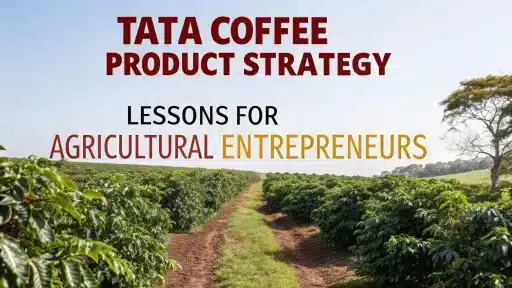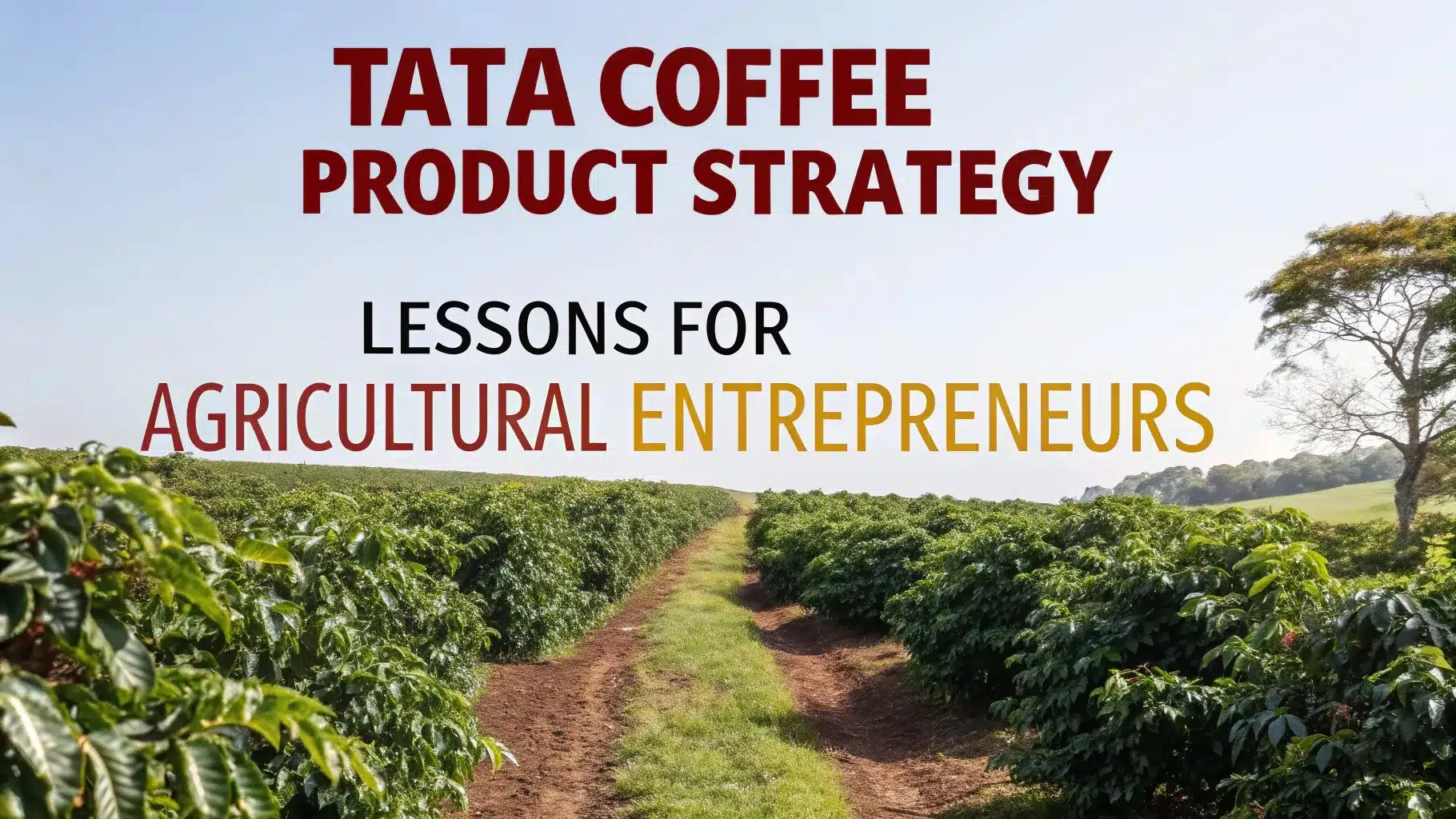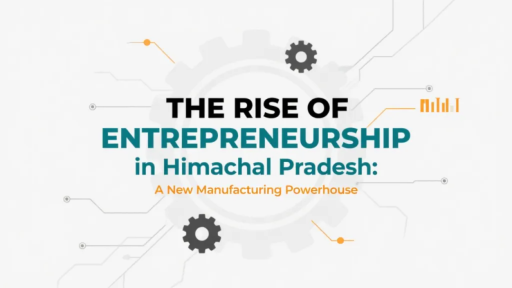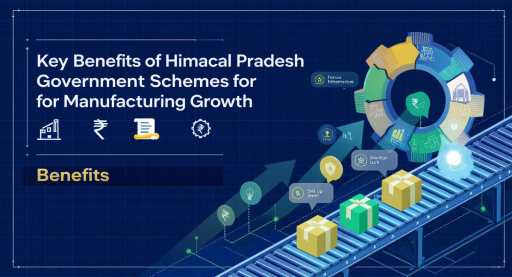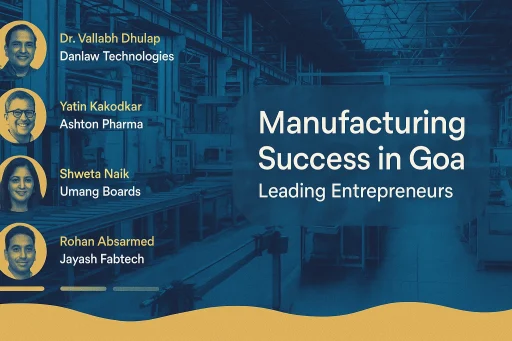Given how unpredictable commodity prices can be, and considering the fact that agricultural producers usually receive the smallest portion of profits, vertical integration stands out as a robust method for achieving growth, long-term sustainability, and value capture, particularly in the Tata Coffee industry. For new businesses, this model provides a long-term roadmap that includes starting from raw production and then progressing to processing and finally retail or export markets.
One of the most notable and easy to imitate examples of this strategy is Tata Coffee, a company that began with plantations and is now running an internationally acclaimed instant coffee business. Tata Coffee controls the entire value chain from bean to cup, which is a hallmark of their vertically integrated product strategy. It demonstrates how agribusinesses can transform into high margin, branded B2B and consumer companies while still having ties to rural areas.
Tata Coffee’s journey shows a multilayered and deeply integrated business structure that includes plantations, processing, and finished goods. Within the ecosystem of Tata Consumer Products Limited, Tata Coffee has complete control of the supply chain. This allows the company to transform basic agricultural outputs into premium and exportable products.
1. Ownership of Plantations
Tata Coffee manages and owns over 19 coffee estates in Coorg, Hassan, and Chickmagalur in Karnataka and some regions in Tamil Nadu. In addition to tea plantations, the estates grow both Arabica and Robusta coffee beans and pepper. These estates prioritize regenerative agriculture and sustainable land management, setting the foundation for quality and traceability in every product.
2. Instant Coffee Processing Facilities
The company operates three major instant coffee facilities:
- Theni, Tamil Nadu – Spray-dried and agglomerated instant coffee manufactured here is sold both domestically and abroad.
- Toopran, Telangana – Advanced processing and packaging
- Vietnam Plant (2019) – Tata Coffee Vietnam Company Limited is their first foreign branch focused on freeze-dried coffee. This facility services European and Asian clients.
Tata Coffee no longer has to limit his business to selling green beans or roasted coffee. These branches enable the company to manufacture instant coffee products that are shelf-stable, packaged for export, and ready for sale in both B2B and branded formats.
3. Product Portfolio
Tata Coffee has strategically diversified its offerings:
- Green beans
- Instant coffee (spray-dried, freeze-dried, agglomerated)
- Private-label B2B solutions
- Tata Coffee Grand – A retail instant coffee brand under Tata Consumer Products
- Tea and Pepper as by-products of diversified estate use
This mix of bulk and branded business ensures flexibility in revenue generation, especially during market volatility.
Related: Export Potential in India’s Food Processing Startups Ecosystem
Strategic Advantages of Vertical Integration
Why should startups care about vertical integration in agriculture? It is because it paves the way for evolution from raw-material supplier to a full-fledged branded consumer goods company or B2B exporter. Here’s what Tata Coffee teaches us about this strategy:
1. Quality Control & Traceability
Tata’s end-to-end visibility—right from seed selection and soil management to final product packaging—grant him unparalleled control over quality. This is particularly advantageous for companies like Tata in global markets where clients demand stringent traceability, especially in the food and beverage segments.
Startups can follow suit by incorporating post-harvest handling with simple grading, and setting up basic quality laboratories.
2. Cost Efficiency and Margin Expansion
Self-owned infrastructures offer better margins, eliminating the necessity for middlemen. Although the initial investment in processing systems is steep, vertical integration provides lower costs. Tata Coffee captures value through harvesting, drying, processing, packaging, and branding, achieving significantly higher net profit per kilogram compared to raw bean sales.
3. Faster Go-to-Market Innovation
Tata Coffee Ltd has the ability to control their own research and development and product design, allowing for dynamic innovation with new product lines, packaging formats, or customized blends for specific consumers. For example, their freeze-dried unit in Vietnam supplies the premium Japanese, American, and European markets.
4. Sustainable Brand Value
From zero-water discharge systems to reforestation programs, sustainability is woven through the identity of Tata Coffee. These green initiatives help aid brand development and work towards ESG compliant programs for global sourcing and impact investors.
Technology & Innovation as Enablers
There is no way that Tata Coffee could shift from a plantation model to a global supplier of instant coffee without adopting deep tech. Here is how Tata Coffee uses tech:
1. Instant Coffee Processing Tech
Tata’s manufacturing lines include:
- Agglomeration for high-value powder texture and solubility
- Spray-drying for cost-effective, high-volume production
- Freeze-drying (used in Vietnam) to retain aroma and quality for high-end clients
Startups focusing on food and beverage processing can consider modular setups of these processes, and NIIR can assist with their smaller-scale plant setup.
2. Digital Plantation Management
Tata’s estates enhance productivity with drone surveillance and analytics on soil health, controlled irrigation, yield forecasting, and real-time ERP quality traceability from farm to factory.
These agritech solutions are crucial for launching integrated startup agribusiness models and becoming more affordable.
3. Sustainability and Certifications
Every Tata Coffee plantation holds a Rainforest Alliance Certification. The company invests in:
- Water bio-waste composting
- Carbon sequestration research
For new businesses, this shows the potential of adopting environmental certification programs early on to appeal to premium markets.
Related: Ensure Food Safety in the Spice Industry with Proven Quality Controls
Market and Financial Performance: Proving the Model
Tata Consumer Products’ Annual Report for 2023-24 highlighted some important business milestones:
- The export of instant coffee grew at a whopping 15% CAGR rate for three years
- The plant in Vietnam achieved complete capacity utilization within two years
- There was strong double-digit retail growth for Tata Coffee Grand both domestically and in key overseas markets
- Diversified revenue streams in green beans, instant coffee, and spices maintained margins even during commodity slumps
It is evident that the vertically integrated model supports consistent and scalable revenue streams that can be levered from domestic and global clients, proving that it is much more than a self-serving branding strategy.
Lessons for Agricultural Startups
As an agri-entrepreneur, Tata Coffee’s practices provide multiple strategic takeaways for you to leverage:
1. Don’t Just Grow—Process and Package
Value addition lies in processing, which goes a long way in increasing profitability. For example, turmeric, moringa, coffee and pepper can all be processed for instant coffee, which paves the way to a 5x margin.
2. Export-First Mindset
Think global right from the start. Building compliance certified products such as HACCP, FSSAI, EU Organic, and Rainforest Alliance ensures marketability.
3. Diversify to De-risk
Having multiple sales channels and product lines provides balance and resilience, a practice shown in Tata Coffee’s range of green beans, instant coffee, retail, and private label products.
4. Brand Ethically
How products are made is a top priority for customers nowadays. Sustainable sourcing of materials, ethical plantation labor, and carbon footprint transparency are priorities for every buyer—especially in Europe and North America.
How NIIR Project Consultancy Helps Agricultural Entrepreneurs
If you are an established agri-exporter wanting to take your business to the next level, or if you are a first-time founder, NIIR Project Consultancy Services (NPCS) is here for you. We ensure that you receive the adequate technical support needed to replicate initiatives such as Tata Coffee.
Here’s how NPCS enhances value:
1. Comprehensive Project Reports
NPCS provides both ready-made and tailored feasibility reports for:
- Instant coffee manufacturing plants (small, medium, large-scale)
- Coffee bean roasting and packaging units
- Processing, spices, and herbal extract processing units
- Plantation management and drip irrigation setups
Each report covers the following detail:
| Section | What It Includes |
| Technical Feasibility | Plant layout, machinery specs, technology choices |
| Market Analysis | Demand trends, trade data, export potential |
| Financial Projections | ROI, workings, capital ROB, break-even, IRR |
| Regulatory Checklists | FSSAI, pollution, factory licenses, labor norms |
| Cost Estimations | CapEx and OpEx break-up, utility costs, profitability |
2. Technology Setup & Plant Design
For manufacturing guided by NPCS, entrepreneurs are supported in identifying and sourcing:
- Freeze-drying, spray-drying and agglomeration machines
- Modular processing units (for low-risk pilots)
- EPC contractors and automation vendors
3. Licensing & Compliance Advisory
NIIR advises on:
- FDA/ISO/HALAL/HACCP for Export or Retail Ready Products
- Organic compliant (India and EU)
- Licensed factory, FSSAI registered
- Process of Factory registration and FSSAI
4. Branding & Go-To-Market Strategy
NIIR functionality also extends to aiding users in:
- Proprietary Northern Industrial Relations (B2B) to cultivate their own private-label coffee line
- Writing white-label partnerships with international brands
- Building brand identity for the farm-to-table narrative
Conclusion: A Model For Start Careers Starting Out Can Learn From
An agribusiness that blends sustainability and profitability, Tata Coffee lays out a roadmap for scaling globally while preserving value throughout its value chain.
Startups in the agricultural sector demonstrate that with proper planning and execution, these businesses can transform from being vulnerable to having sustainable value creation.
Vertical integration isn’t only for large companies. With the right feasibility guidance, technology inputs, and market positioning which NIIR Project Consultancy specializes in even small entrepreneurs can build profitable brand lines of instant coffee, spice extracts, or even functional foods focused on Indian agriculture.
For more detailed information check our project reports
📞 Ready to Build Your Integrated Agri-Processing Business?
With your idea on plantation, processing, or exporting, NIIR Project Consultancy can assist you in developing a scalable business model with worldwide relevance.
Reach out to us for in-depth consultations along with special feasibility reports.

